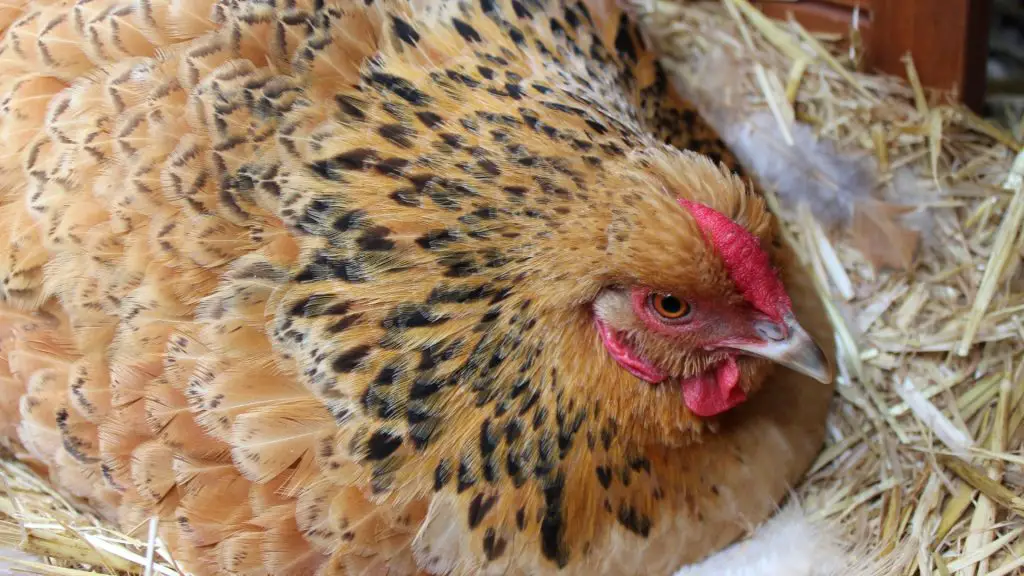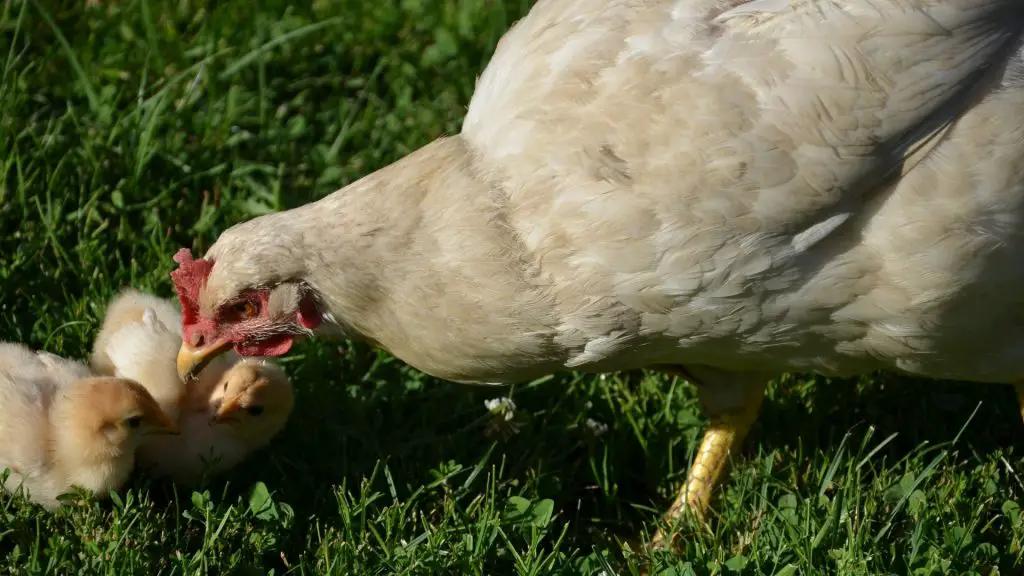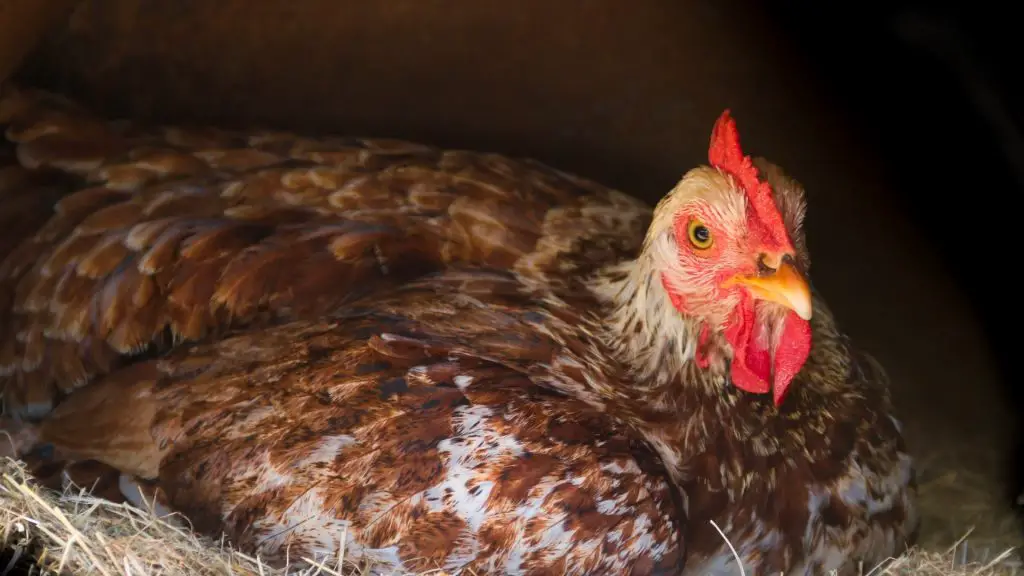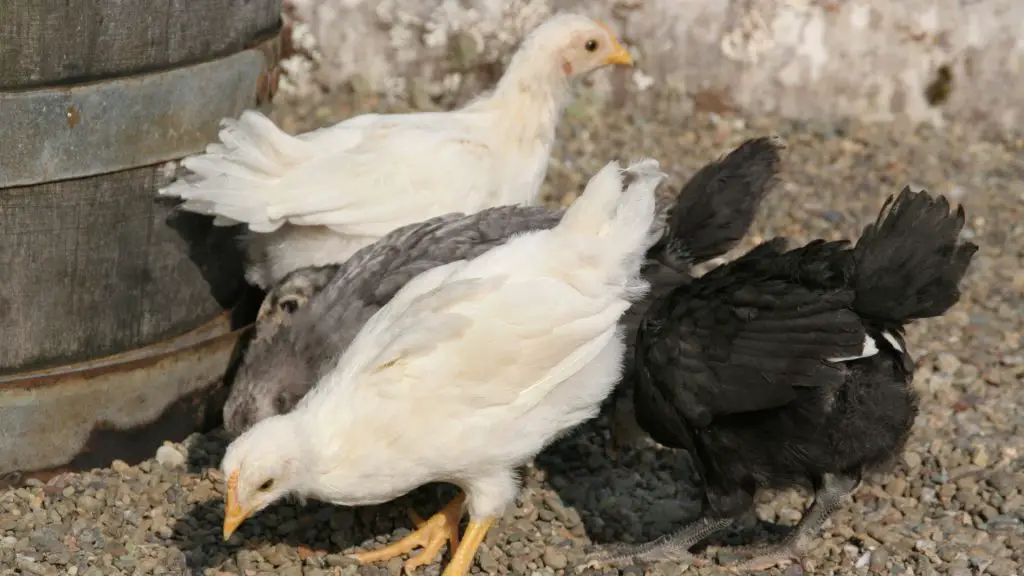When raising chickens, there are several considerations you’ll need to make about how and where to keep them, what to feed them, and how much space to give them for roaming. However, it’s also crucial to consider the instinctual behaviors of these livestock animals.
What is a broody chicken? A broody chicken is a hen that refuses to lay more eggs, preferring instead to hatch fertilized eggs and raise a small brood of chicks. Any mature hen can become broody, though older hens may be more prone. Farmers can either embrace this behavior or attempt to end it prematurely.
For example, female chickens (hens) can refuse to lay eggs if they become broody. During this time, they’ll seek to watch over and hatch a nest of fertilized eggs. This article will examine what broody chickens are and what to do about them.
What Does the Term Broody Chicken Mean?

The term broody chicken means that the hen has decided to raise a brood of chicks. When a hen stops laying eggs and begins attempting to hatch her own nest of eggs, she’s become a broody chicken.
This natural behavior can occur in any mature, egg-producing hen. But, of course, farmers and ranchers hoping to maximize egg production can feel frustrated when their hens stop laying.
Factors That Trigger Brooding in Chickens

Immature chicks never become broody chickens, and neither do roosters. That’s because brooding behavior stems from a complex chain of reactions that occur in female chickens.
There are factors that trigger brooding behavior in chickens. As you might expect, broody chickens typically experience more than one of these factors, which will be discussed below, when they decide to stop laying eggs and start nesting. Consequently, it’s essential to analyze each component when attempting to understand what causes hens to become broody.
Hormones
The primary components that allow baby chicks to grow into sexually mature adults are hormones. Just as with humans, growing chicks experience a burst of growth hormones during their ‘teenage’ months.
Female chickens will see a rapid increase in estrogen and progesterone, while male chickens encounter climbing testosterone levels. These hormones cause the chicks to develop into their easily identifiable counterparts: roosters and hens.
But these growth hormones also cause female chickens to begin laying eggs. When this happens, the hen is capable of producing viable offspring. Still, the first few dozen eggs produced by a young hen may not be of the highest quality.
Notably, a hen’s hormones will remain consistently high for the first two to three years of sexual maturity. During this time, female chickens are most prone to becoming broody, likely due to the nature of the hormones running throughout their bodies.
Maturity
As we mentioned above, maturity and broody behavior walk hand-in-hand. Immature chickens do not attempt to nest or raise chicks, as they haven’t sexually matured.
However, reproducing and raising the next generation of offspring is an instinctual behavior that often comes with sexual maturity. This is true of most mammals, as well as many species of birds.
Instinctual Behaviors
Creatures with even the smallest amount of intelligence can exhibit two types of behaviors: Learned behaviors or instinctual behaviors. When it comes to chickens, brooding is entirely instinctual.
This means that you could raise a hen in total isolation from other chickens, and they may still become broody. Brooding behavior isn’t learned by watching other chickens or being around fertile roosters.
Instead, it stems from biological factors (such as hormones) that occur during and after sexual maturity.
How Long Will a Chicken Stay Broody?

Brood behavior is almost always the result of a mothering or reproductive instinct in female chickens. Consequently, it persists for about the same length as the typical chicken incubation and hatch cycle: 21 days.
It’s uncommon for chickens to continue broody behaviors after these three weeks. As a result, many farmers simply allow their hens to mother a new brood of chicks.
After the baby chickens hatch, the brooding instinct should wane. At this point, the hen is returned to the egg-laying coop or house. But, of course, waiting out the broody chicken isn’t a farmer’s only option.
What to Do About a Broody Chicken?
When a hen begins to show signs of broody behavior, there are two possible solutions. Chicken farmers can:
- Allow the chicken to brood, or
- Discourage brooding behaviors
The best course of action depends on the chicken owner’s priorities and preferences. However, it’s crucial to note that not all discouraging efforts will be successful. Remember, brooding is a natural and instinctual behavior that every hen experiences.
Allow the Chicken to Brood
The first option available to farmers is simply allowing their broody chickens to nest. After all, broody chickens can hatch and raise a new generation of chicks.
According to the National Institute for Basic Biology, chicks raised by broody chickens tend to enjoy better lifelong behavioral development than those raised in other environments. Farmers looking to breed a healthy and happy future generation of chickens may want to allow their chickens to become broody.
Backyard chicken coops are still relatively popular, especially as more folks purchase properties with acreage. In addition, the market for fertilized chicken eggs and newly hatched chicks is healthy, so chicken farmers can take advantage of broody chickens to produce market-friendly chicks.
Those that don’t have roosters may still opt to wait for their chickens to overcome broody behavior. But, of course, if egg production is a high priority, waiting three weeks may not be the best choice.
Discourage Brooding Behaviors
Farmers who would like to shorten the brooding period can make the chicken’s nest uncomfortable and unsavory. This action may seem cruel, but it could put an end to a chicken’s brooding.
To discourage broody chickens from refusing to lay eggs, chicken farmers can place ice packs in the chicken’s nest, remove or destroy the nest, or place a strong fan next to the nest. Any of these actions will make the area unsuitable for hatching eggs.
Chickens need warm, quiet, and safe spaces to hatch a new brood of chicks. Perhaps the most effective method of discouraging brooding is lowering the ambient air temperature to 75℉ (23.889°C) or lower.
How to Stop a Chicken From Brooding?

Ideally, there would be an easy way to keep your chicken from becoming broody. However, this type of instinctual reproductive behavior is impossible to avoid when you’re handling mature chickens.
Consequently, there are only two potential ways to prevent broody chickens from affecting your egg production rate:
- Keep young hens, or
- Don’t raise roosters
Notably, neither of these options is foolproof. After all, keeping young hens may help prevent the bulk of broody behavior, but your flock can still decide to stop laying and start hatching.
Additionally, keeping roosters off your property or far away from hens will only keep them from producing fertilized eggs. As a result, they may still become broody chickens, even though they don’t have access to viable offspring.
However, keeping a young group of hens isolated from roosters may be the most foolproof method for avoiding broody behavior. After all, brooding stems from a combination of maturity, hormones, and instinctual behaviors.
Hens that are at the cusp of their fertile years and have never interacted with a rooster may retain their pre-sexual behaviors and instincts for a more extended time. This setup could allow them to produce eggs for a longer period before exhibiting broody behavior.
Still, these aren’t ironclad solutions. They’re also not entirely cost-effective or practical.
You can sell mature chickens simply because they’ve started to become broody can be a severe drain on a rancher’s time and energy. Roosters are also an excellent resource for chicken farmers, as they ensure endless future generations of egg-laying chickens.
List of Sources
Persistent Effect of Broody Hens on Behaviour of Chickens
